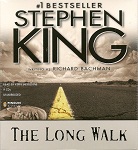
 The SFFaudio Podcast #107 – Scott, and Jesse talk about new audiobooks, recent arrivals, new releases, the theatre and and comics too!
The SFFaudio Podcast #107 – Scott, and Jesse talk about new audiobooks, recent arrivals, new releases, the theatre and and comics too!
Talked about on today’s show:
Little Women, Louisa May Alcott, Pride And Prejudice, Charlie’s Aunt, 1776, John Hancock, John Adams, Thomas Jefferson, David McCullough, Penguin Audio, Across The Universe by Beth Revis, generation ship, murder, “earth is nowhere new the final frontier”?, Hamlet, A Discovery Of Witches by Deborah Harkness, “he loves yoga and he’s a vampire?”, history, wine, the multiple meanings of discovery, Christopher Columbus DID (in a sense) discover North America, uncover vs. discovery, WWW: Wake by Robert J. Sawyer |READ OUR REVIEW|, “mining the same ideas” in a trilogy, Seth Wilson, Spirit Blade a christian audio drama, Pilgrim’s Progress |READ OUR REVIEW|, comicbookjesus.com’s review, An Accidental Adventure: We Are Not Eaten By Yaks by C. Alexander London, Stormbreaker by Anthony Horowitz, GoodReads.com, Ranger’s Apprentice: Book 10 – The Emperor Of Nihon-Ja by John Flanagan, the Ranger’s Apprentice Wiki, The Lord Of The Rings, Blackstone Audio, Sweep: The Coven by Cate Tiernan, Dreamhouse Kings: Book 6 – Frenzy by Robert Liparulo, Aural Noir, Silent Mercy by Linda Fairstein, the Alex Cooper series, series Crime/Mystery vs. series Fantasy/Science Fiction, Sue Grafton, Star Trek, Star Trek: The Next Generation, Star Trek: Deep Space Nine, Star Trek: Voyager, Star Trek: Enterprise, SFSignal.com’s Which SciFi Series Should You Watch on NetFlix? This Handy Flowchart Will Help You Decide!, Night Vision by Randy Wayne White, the extremely negative reviews on Amazon.com, When The Thrill Is Gone by Walter Mosley, Blue Light, Futureland, John DeNardo’s review of Blue Light, Bell Air Dead by Stuart Woods, Strategic Moves by Stuart Woods, “Stuart Woods is a writing machine”, Richard Ferrone, Tamahome got bogged down in the Martian sand (of Kim Stanley Robinson’s Red Mars), Buried Prey by John Sanford, kidnapping, “this dude has other dudes as well”, the Virgil Flowers series, Bad Blood, the next readalong is 361 by Donald E. Westlake, Port Mortuary by Patricia Cornwell, the Kay Scarpetta series, forensic detection, Kathy Reichs, Bones, new releases, Hachette Audio, Consider Phlebas by Iain M. Banks, space opera, Coruscant, extremely detailed strange stuff, Audible.com, Recorded Books, Glasshouse by Charles Stross, Hard Magic: Book I of the Grimnoir Chronicles by Larry Correia, Audible Frontiers, Monster Hunter International by Larry Correia, Second Variety and Other Stories by Philip K. Dick, William Coon, The Most Dangerous Game, The Variable Man by Philip K. Dick, Buffalito Destiny, David Drake’s Hammer’s Slammers series, military SF, The Collected Stories Of Arthur C. Clarke Vol. 5, Bronson Pinchot, The Alchemy of Desire by Crista McHugh, Cormac McCarthy’s The Road (translated into Danish), The Stress Of Her Regard by Tim Powers, The Broken Sword by Poul Anderson, Orion And The King by Ben Bova, The Automatic Detective by A. Lee Martinez, robot detective vs. femme fatale, “satisfying conclusion, clever, twisty, fast” = good, Monster: A Novel, Divine Misfortune, The Stainless Steel Rat Book 8, Too Many Curses, FREE COMIC BOOK DAY, Criminal: Bad Night by Ed Brubaker and Sean Phillips, The League Of Extraordinary Gentlemen Vol. 2 by Alan Moore, Listening For The League’s Gentlemen, Mars, aliens, H.G.Wells, The War Of The Worlds, Allan Quatermain, Bongo Comics, The Simpsons, Baltimore, Mike Mignola, Hellboy, Fafhrd And The Gray Mouser, Civil War Adventure, Locke & Key, Blair Butler, Joe Hill, TV version of Locke & Key, DMZ, Brian Wood, Fables, Y: The Last Man, The Boys: Highland Laddie, Garth Ennis, 361 by Donald E. Westlake, Hard Case Crime, Charles Ardai, Memory by Donald E. Westlake, The Comedy Is Finished by Donald E. Westlake, The King Of Comedy, Getting Off by Lawrence Block, James M. Cain, David Morrell, Stephen King, John D. MacDonald.
Posted by Jesse Willis

